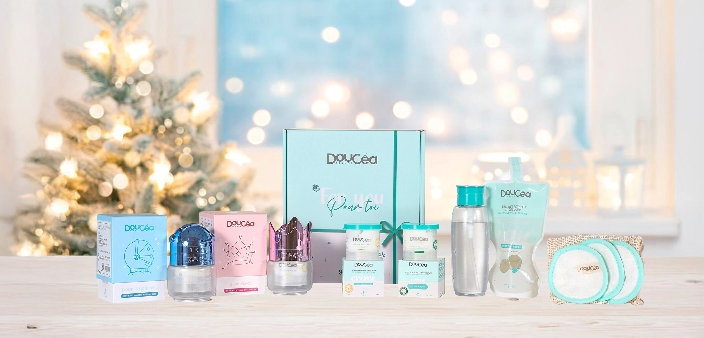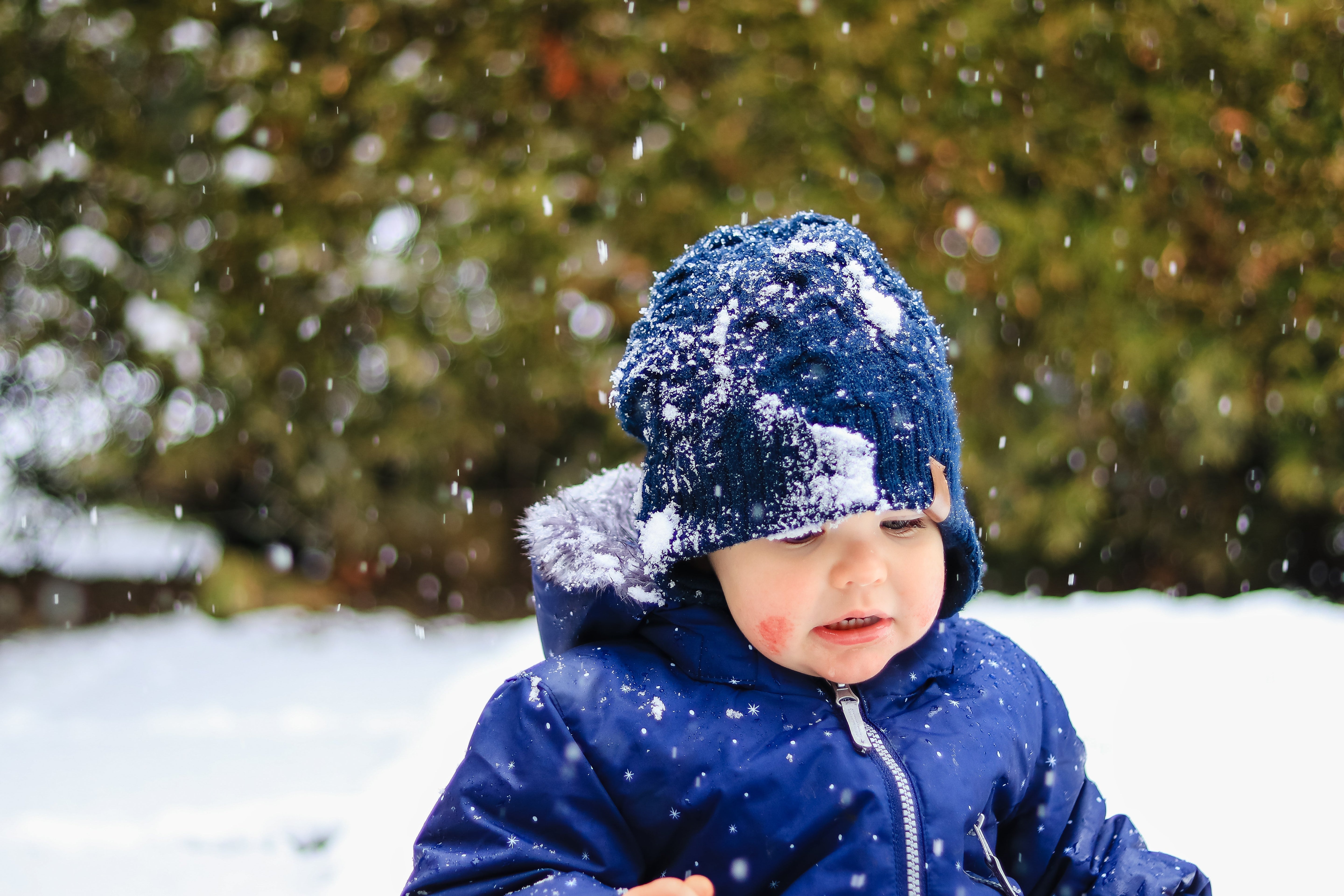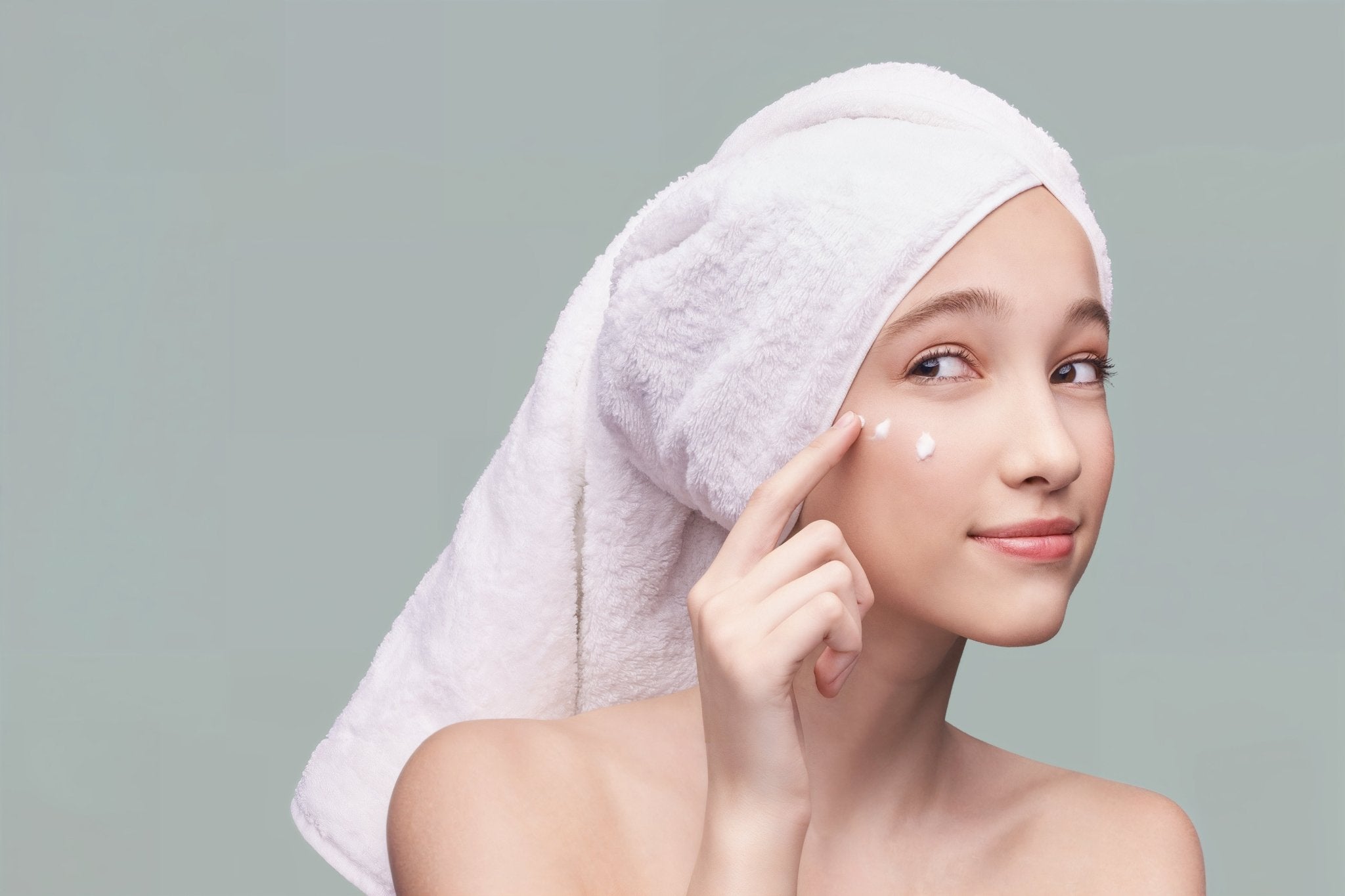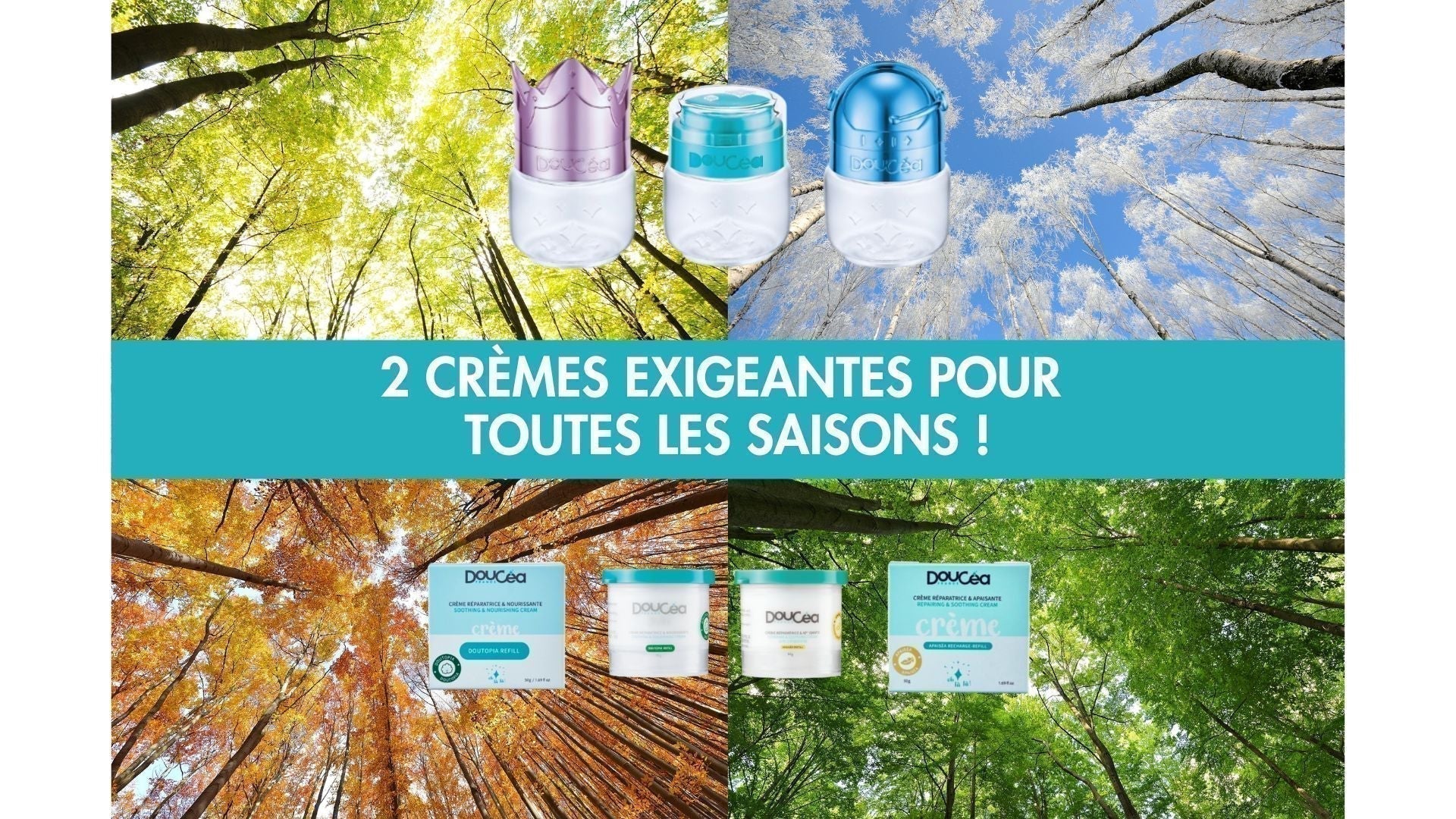Winter, with its low temperatures and dry air, is a particularly challenging time for children with atopic skin or eczema . Although the cold is often seen as an aggravating factor, it is not the only culprit behind eczema flare-ups. However, it plays a key role in skin irritation, particularly by accelerating dehydration. Combining this cold with dry air from heating and temperature fluctuations puts the already fragile skin of atopic children under the influence of stress. This article highlights the reasons why eczema flares up during the winter season, the specific symptoms of flare-ups in children, and practical tips for caring for their skin and limiting the impact of these flare-ups.
Why does eczema get worse in winter?
The worsening of your child's eczema in winter can be attributed to several specific factors related to the weather conditions of the season. One of the main factors is the reduction of humidity in the air. The cold and dry wind of winter significantly decreases humidity levels, leading to increased dehydration of your child's fragile skin.
Dry air, combined with indoor heating systems, further exacerbates this dehydration. Heating systems, in particular, dry out the indoor atmosphere, making it difficult to maintain the moisture needed for healthy skin. This loss of moisture weakens the skin barrier, which is already fragile in children with atopic eczema, and makes their skin more sensitive to irritants and allergens.
Additionally, the cold itself plays an active role in your child's skin inflammation. When skin cells are exposed to lower temperatures, it triggers inflammation that spreads throughout the body, exacerbating eczema symptoms.
Winter lifestyle habits, such as overly hot baths or wearing irritating clothing like wool, can also worsen symptoms. Adopting a proper skincare routine is essential to protect and soothe your child's atopic skin.
What are the symptoms of winter eczema in children?
When your child's atopic eczema worsens in winter, several characteristic symptoms appear. One of the most common manifestations is increased dryness, which results in irritated, sensitized, and often cracked skin.
Itching is another major symptom and can be particularly intense, sometimes disrupting your child's sleep. It is often accompanied by red, scaly patches that appear on the face , hands, and other areas exposed to the cold.
Fluctuations in temperature between indoors and outdoors, as well as sweating caused by wearing multiple layers of clothing, can trigger more frequent eczema flare-ups. These flare-ups are often marked by increased skin inflammation, making symptoms even more difficult to manage.
The right steps to protect your child's skin
To protect your child's skin from the harsh winter weather, there are several healthy steps you can take to maintain hydration and prevent dryness. Here are some practical tips to help you maintain healthy, hydrated skin throughout the season.
Change your skincare routine
In winter, it's essential to replace your child's light day creams with richer, creamier formulas. Products containing sweet almond oil, shea butter, or argan oil are particularly suitable for caring for the dry and atopic skin of young children.
Winter can be particularly challenging for children with atopic or eczema-prone skin. To protect their fragile skin, it's essential to choose skincare products containing prebiotics. By nourishing and balancing the skin's flora, these ingredients strengthen the skin's protective barrier and help maintain its moisture, which is essential during cold weather. Prebiotics act as a shield, reducing the impact of external aggressors such as cold, dry air, or temperature fluctuations, while preserving the skin's natural balance. In this article, we'll explore the benefits of prebiotic skincare for children with eczema and how to incorporate these products into their daily routine to soothe and protect their skin during winter.
Hydration from the inside and outside
Hydration is essential, both internally and externally. Make sure your child drinks enough water throughout the day—around 1.5 liters for older children—adjusting the amount to their age and needs. In addition to water, vegetable soups and herbal teas can also help increase their water intake.
Avoid water that is too hot
Hot baths and showers dry out your child's skin by removing its hydrolipidic film. Choose lukewarm showers and avoid prolonged contact with very hot water.
Use a gentle, moisturizing cleansing gel, specially formulated for children's sensitive skin, which leaves a protective film on the skin after rinsing.
Protect skin from heated interiors
The dry air of heated indoor spaces is a major enemy of skin in winter. To maintain a suitable humidity level for your child's delicate skin, use a humidifier or place bowls of warm water near radiators. This helps offset the drying effect of central heating.
Take care of exposed areas
Your child's hands, lips, and face are particularly vulnerable to the cold and wind. Regularly apply nourishing creams to these areas and use child-friendly lip balms. To protect their little hands, consider having them wear cotton gloves under their winter gloves.
Use nourishing masks
Once or twice a week, apply a nourishing and soothing mask to your child's skin if it tends to dry out or become easily irritated. Leave it on for about twenty minutes before removing the excess with a cotton pad soaked in micellar water. This deep treatment helps restructure the skin and compensate for winter stress.
Cover skin when going out
When your child goes outside, cover them up as much as possible to protect their skin from the cold and wind. Use gloves, a scarf, and a hat to minimize exposure of vulnerable areas.
These good habits, practiced regularly, can significantly improve the health and hydration of your child's skin throughout the winter.
Which Doucéa products can soothe your child's skin?
A proper skin care routine is essential for managing eczema . Daily application of emollients or moisturizers helps maintain skin moisture and strengthen the skin barrier. It is advisable to use fragrance-free and hypoallergenic products, avoid harsh soaps, and favor short, lukewarm baths or showers. Additionally, wearing cotton or linen clothing can reduce skin irritation, helping to decrease inflammation and improve skin condition.
Our products
To support this skincare routine, Doucéa offers a range specially formulated to meet the needs of very dry and/or atopic skin.
DOUTOPIA : restorative care cream with Prebiotics and Madecassoside - cortisone-free!
Specially formulated, this "rich" cream instantly moisturizes and soothes feelings of discomfort, while effectively repairing the skin barrier. Thanks to its formula enriched with Madecassoside (Centella Asiatica extract) and prebiotics , it protects the skin from irritation and helps reduce the signs of eczema. Its soft texture absorbs quickly, providing immediate comfort without leaving a greasy or sticky film.
Properties
- Repairs and soothes very dry and atopic skin
- Soothes irritation and redness thanks to Madecassoside, an anti-inflammatory and healing active ingredient
- Maintains long-lasting hydration
- Protects and strengthens the skin barrier
Dermatologically tested
Fragrance-free
Benefits
- Immediately relieves feelings of discomfort (itching, inflammation) and dryness
- Rich but non-greasy, non-sticky texture
- Fast absorption , for daily comfort
Ingredients
- Madecassoside : A recognized soothing and anti-inflammatory active ingredient, it reduces irritation and diminishes redness immediately.
- Inulin (Prebiotic) : Balances the skin microbiome to strengthen the skin's natural defenses, providing optimal protection.
- Trio of nourishing oils : Sweet Almond Oil, Sunflower Oil, Jojoba Oil – Nourishes, repairs and soothes fragile skin, while protecting the skin barrier and maintaining long-lasting hydration.
- Hydrating Sugar Complex (Xylitylglucoside, Xylitol, Glucose): Retains water in the skin for optimal hydration.
- Tocopherol (Vitamin E) : Antioxidant that protects the skin from external aggressions.
Use
Apply morning and/or evening to clean, dry skin. Massage gently to penetrate, paying particular attention to the driest or eczema-prone areas (face or other affected areas).
In summary
Your child's atopic skin is particularly vulnerable in winter. By adopting a suitable skincare routine and using gentle products like those from Doucéa, you can protect their skin and limit eczema flare-ups.
















